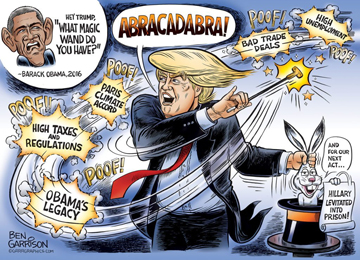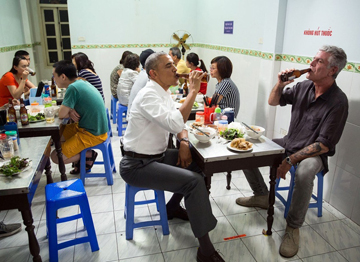|
| |
|
| |
|
|







|
|
TCHS 4O 2000 [4o's nonsense] alvinny [2] - csq - edchong jenming - joseph - law meepok - mingqi - pea pengkian [2] - qwergopot - woof xinghao - zhengyu HCJC 01S60 [understated sixzero] andy - edwin - jack jiaqi - peter - rex serena SAF 21SA khenghui - jiaming - jinrui [2] ritchie - vicknesh - zhenhao Others Lwei [2] - shaowei - website links - Alien Loves Predator BloggerSG Cute Overload! Cyanide and Happiness Daily Bunny Hamleto Hattrick Magic: The Gathering The Onion The Order of the Stick Perry Bible Fellowship PvP Online Soccernet Sluggy Freelance The Students' Sketchpad Talk Rock Talking Cock.com Tom the Dancing Bug Wikipedia Wulffmorgenthaler |
|
bert's blog v1.21 Powered by glolg Programmed with Perl 5.6.1 on Apache/1.3.27 (Red Hat Linux) best viewed at 1024 x 768 resolution on Internet Explorer 6.0+ or Mozilla Firefox 1.5+ entry views: 328 today's page views: 262 (32 mobile) all-time page views: 3385928 most viewed entry: 18739 views most commented entry: 14 comments number of entries: 1226 page created Thu Jun 19, 2025 21:36:52 |
|
- tagcloud - academics [70] art [8] changelog [49] current events [36] cute stuff [12] gaming [11] music [8] outings [16] philosophy [10] poetry [4] programming [15] rants [5] reviews [8] sport [37] travel [19] work [3] miscellaneous [75] |
|
- category tags - academics art changelog current events cute stuff gaming miscellaneous music outings philosophy poetry programming rants reviews sport travel work tags in total: 386 |

| ||
|
In the lead-up to probably the two most important events of the year - yes, the TRUMP-Kim Singapore Summit and the World Cup - we present a few carefully-curated readings. Our Most Successful Investment Firm Again First up, a 2009 discussion on Temasek, by one of those in-the-loop. Their latest return to the limelight was, of course, the floating of a private equity bond to "help investors supplement their retirement income". This oddly-specific mission statement has garnered a fair bit of misgivings (are they renaming the CPF as Astrea IV Class A-1 Secured Bonds nowadays?) regarding the rationale of it all. There has been no lack of external analyses, given the high profile of the issuer, but a key takeway should be that the bonds are not guaranteed. However, the general consensus also appears that the 4.35 p.a. return should be sound, barring another financial meltdown. While there have predictably been mumblings that Our Most Successful Investment Firm is simply out of cash again (not entirely unjustified given recent admitted losses despite a booming bull market), I'd personally peg this as an unlikely motivation, given the tiny overall slice available to retail (just over US$100 million); angling for some good P.R., after watching what's going on across the Causeway as the 1MDB house of cards comes crashing down, seems more likely. I'd be slightly more concerned if this issuance turns out to be a test balloon of sorts and OMSIF begins to get into the habit of raising larger and larger sums from the populace, though. In any case, the structuring of the bonds follows the iron-clad law of establishment financial innovation - we keep the upside, the small fry cover the downside. As previously explained in 2014 with reference to the CPF, bond/fund-holders do not get a bigger share if OMSIF actually wins big with their investments, but they (and not OMSIF) suffer the losses, if the OMSIF bets go bust. It's hard to find a better deal than this.  Teh-O? It's Kopi Lim, if you keep talking about this! (Source: channelnewsasia.com) Anyway, returning to the "Temasek in a teacup" post, there has always been a sense of puzzlement surrounding what OMSIF actually is. Its longtime CEO has consistently denied that it is a sovereign wealth fund, despite its funding and positioning being ultimately derived from sovereign sources. Emmanuel Daniel describes them as "part EDB, part investment-banking-inspired-private-equity-business and part fund management company", from which the Astrea bond issue might be understood as arising from the "EDB hormone" of not being entirely devoted to the bottom line. However, Daniel continues, the problem is that the EDB mentality is to pile on risks, because "...EDB executives tend to be measured by the spectacularly successful investments they make, with complete unaccountability for the spectacularly unsuccessful ones." (again, the all-upside-no-downside pattern, also prevalent in Big Finance), which is further reflected in their chapalang portfolio style. His diagnosis is that all meaningful decisions are made by the reigning CEO anyway, for all the research done at lower levels, and that although the CEO may be (and remains) one of the most "quietly connected" people here (for obvious reasons), unspoken drawbacks abound with this sort of arrangement. The fate of former OMSIF darling Hyflux could be instructive here, as they become the latest of our already-few notable homegrown startups to bite the dust, after years in distress (see example instructive process of vultures circling over at the ShareJunction forums), presaging a possible bond default (already rife in O&G). Looking at how they're throwing money at stuff like Magic Leap, despite the in-crowd roundly panning it, let's just say that I wouldn't be surprised if the CPF Minimum Sum accelerates its upwards trajectory. The Deadly Dance - US vs. China On to Christopher Balding's take on framing the US-China trade conflict with game theory. Before continuing, a few pertinent facts: under TRUMP's incomparable leadership, U.S. unemployment is at an 18-year low of 3.8%, and that's not even mentioning the largest monthly full-time job creation rate in a century, accompanied by a monster 4.8% GDP growth rate. These facts should be considered alongside insistence by Fake News Experts that "3% GDP growth is unrealistic", and an unimaginative narcissistic former President who queried, "what magic wand do you have?". Well, I daresay he's got his answer.  Don't let dry theory stop you from trying... (Source: grrrgraphics.com) But back to Balding's very systematic dissection of the US-China trade relationship. His first question is whether China should be confronted over its protectionist policies, to which the answer is an unmitigated yes (from those outside of China, of course). The next question is then whether this confrontation is over a technical/marginal dispute, or whether it is a fundamental conflict. Balding contends that it is a fundamental disagreement over the nature of international trade, and I cannot disagree. The natural question is then how this confrontation should be pursued - should they do it the Hillaryesque establishment way, with strongly-worded letters to the WTO? Balding contends that this tack would have next to no effect, which is borne out by ample past evidence. Where I diverge from his analysis is his assertion that the identity of the POTUS does not actually matter much - Balding uses a "wins above replacement" sabermetric analogy, which I think is particularly unsuited to geopolitics. Recall that the very reason why statistics took off with baseball, was that many performance metrics could be effectively isolated - much of the action is one-on-one duels between pitcher and batter, and stat freaks could tally every ball, strike and hit. However, in the Greatest Game, even the rules can change, which is TRUMP's whole worldview. One oft-raised fair question is then: if the target is China, why is TRUMP picking fights with his neighbours and Europe, at the same time? An answer is that America's erstwise allies would be entirely happy to act as middlemen for Chinese products, were they unconditionally spared from tariffs (unlike, say, South Korea, who agreed to a voluntary quota). The second, even simpler answer is that he can indeed fight the whole world - and win. It should be telling that editorials attempting to explain why TRUMP can't win tend to resort to convoluted explanations as to why objective advantages such as a humongous trade deficit and unparalled import market somehow don't matter in this case - money doesn't matter in postmodernist economics, it seems. The mainstream media has, for one, been breathtakingly dishonest in their characterization of trade wars. The accepted narrative is that "nobody wins trade wars", which is clearly patently untrue to begin with - note China repeatedly caving, while trying to keep up a brave front. In like vein, the Fake News has been continually criticizing TRUMP for having the gall to impose tariffs, while being conspiciously silent on how his "allies" maintain tariffs on America, which he underlined by a drop-the-mike moment at the G7 summit, when he challenged everyone to drop all tariffs, since they hate them so much: Yes, why are the news outlets not debating this? A particular low was reached when Trudeau - one of the most smarmy and disingenious politicians that I have had the misfortune to come across - pulled out the war buddies card, to which TRUMP deservedly responded by remarking that Canada burnt the White House down, so why are they too good for American milk? A less-dignified POTUS could have pointed out the countless lives expended in liberating the half of France that wasn't actively corroborating, or the way the USA put Germany and Japan back on their feet despite definitely not owing them anything, but the GOD-EMPEROR has too much class for that. An adjective eagerly applied to TRUMP by the presstitudes is that his style is transactional, to which one can only gape in amazement. Of course he's transactional, trade is transactional! For all the high moral ground the Europeans are trying to occupy, they don't actually care all that much for free trade either - what they want is the same transaction that everyone's after: free trade for the stuff that I'm exporting, tariffs for the industries that I'm trying to protect. Anyway, for all of Merkel & Macron's optimistic bluster about European unity, an inescapable truth is that Europe's default historical condition has been one of hostile fragmentation, in which one can hardly find a polity that has not at one time been a mortal enemy of any other. It is another truth that the current EU, already weakened by Brexit, is facing growing internal dissent as non-core states (i.e. neither Germany nor France) come to realise that having a common currency can be a very bad deal after all. The new populist Italian government is already out to restore the lira, and it's anybody's guess how long the M&M alliance can hold out after that.  Still better than Trudeau. (Source: reddit.com) With all sincerity, a not-unlikely outcome is a realignment of the Western power bloc, centering around a revitalized Anglo-American hegemony, buttressed by Eastern and Southern European members that have had enough of chafing under Germany's jackboot heels while tolerating SJW-ism run wild. Poland, for example, has been one of TRUMP's staunchest supporters, and also been kind enough to offer America US$2 billion to host a permanent base on their soil - the sort of honest deal that TRUMP appreciates. It really isn't hard to see Hungary, Italy, Greece etc break ranks given some inducements by the King of Deals, after which it'll be interesting to see exactly how deeply Merkel & Macron like each other, once they're reduced to swapping baguettes and bratwurst between themselves... De-Globalization Due Well, that really diverged from China. We'll return to them with Michael Pettis' April post on the tradeoff between high wages and high savings under globalization. His abstract speaks for itself: "Democracies will increasingly have to choose between raising wages and redistributing income or maintaining free trade and capital flows. Because they are likely to choose the former, the world may face a long-term reversal of globalization." It is understandable if this seems strange offhand - take a man earning six figures, say US$200k, after taxes; wouldn't he be able to save a lot, say US$100k a year, without much difficulty? Contrast a minimum-wage earner, taking home just US$20k - clearly, no matter how frugal he is, he can't save more than that, so why are high wages and high savings opposed? The explanation is that wages vs. savings is a macro affair, and is meant to be considered at the level of the national economy. Pettis offers America as the classic (relatively) high-wage model, with China, Japan, South Korea and other East Asian economies as examples of the high-savings model. This is also known as the Gerschenkron model, after Alexander Gerschenkron who in the 1950s argued that developing countries should encourage savings to accelerate development. As it turns out, this could be achieved by suppressing the household share of GDP (e.g. by locking up $$$ in the CPF as a form of hidden tax) Pettis' observation is that the Gerschenkron model has already run its course in Japan, who went from being a bona fide threat to overhaul America in the 1980s, to being the quirky manga and JAV producers that they are today (as another pertinent parallel, consider their Fifth Generation computing project funded by what appeared to be an endless stream of money, to China's massive contemporary bet on artificial intelligence; I won't be holding my breath, given one of their big shots telling Wired that "there is really one fundamental AI innovation [?] - deep learning [?!] - and everybody else is tweaking it for the domains"; if that's the limit of their imagination, there's little cause for concern) In conclusion, Pettis' verdict is that as Japan has been unable to reverse its savings bias, despite painful decades of effort, China is likely to face approximately the same problems very soon, only magnified many times over (thus all their moneyed citizens fleeing to the decadent West, and driving up property prices). Considered in this light, China's continual backing off in the trade war preliminaries might make a lot more sense; the worst that can realistically happen to TRUMP is a luxurious retirement, shuttling between his skyscraper penthouse and Mar-a-Lago. Can Helmsman Xi afford another nothing to happen in Tiananmen? They Go So Fast  In happier times? [N.B. alternate view from two years ago] [N.N.B. they framed the table and stools] (Source: reddit.com) Kate Spade, now Anthony Bourdain, both with a connection to Singapore. The obvious question weighed - both were fabulously wealthy, widely-liked with thousands upon thousands of adoring fans, and were by all accounts clear of scandal. Why did they, then, take their own lives, when others in far worse circumstances did not? Richard Cory gets quoted a lot, when this happens: We people on the pavement looked at him: He was a gentleman from sole to crown, Clean favored, and imperially slim. And he was always quietly arrayed, And he was always human when he talked; But still he fluttered pulses when he said, 'Good-morning,' and he glittered when he walked. And he was rich - yes, richer than a king - And admirably schooled in every grace: In fine, we thought that he was everything To make us wish that we were in his place. So on we worked, and waited for the light, And went without the meat, and cursed the bread; And Richard Cory, one calm summer night, Went home and put a bullet through his head. Well, I say, it helps to be pissed - if all else fails, one should rage, overworn as the phrase may be; rage, rage against the dying of the light. The Last Light Of Western Civilization The Eagle Has Landed! [N.B. The convoy of the GOD-EMPEROR, along Eunos] [N.N.B. Kimmy should really spring for motorcycles for his bodyguards at least... I mean, heck, we'd probably pay for it all if he asked nicely] Next: Call It Again
|
|||||||
 Copyright © 2006-2025 GLYS. All Rights Reserved. |
|||||||